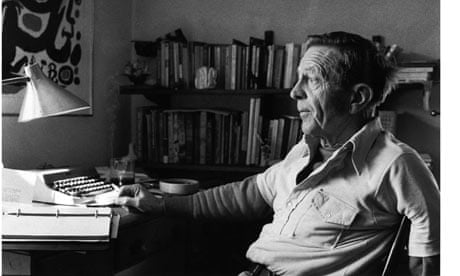This star-studded film stars Josh Brolin as Eddie Mannix, a "fixer" who attempts to keep a movie company in line, which feels more like the ringmaster to a circus due to the demands of the rich and famous. Although Mannix keeps everything in line, his job is thrown into disarray when major star Baird Whitlock (George Clooney) is kidnapped for a ransom in the middle of filming the titular movie-within-a-movie, Hail, Caesar! The note comes from "The Future," an undercover group trying to spread communism throughout the studio systems. Meanwhile, directors and stars clash, scandals need covering up, and communism is indeed on the rise, fulfilling all fears.
Narrated by Michael Gambon and also starring Ralph Fiennes, Tilda Swanson, Scarlett Johansson, Channing Tatum, and Alden Ehrenreich, Hail, Caesar! is mysterious, nutty, and a fun misadventure in Los Angeles.
Hail, Caesar! offers some exciting source material for the main characters, as Mannix's character and the events that went on in the film were not uncommon for the time, but the Coen Brothers do offer their signature stranger-than-fiction twist when need be. Most roles and backstories are inspired by real people during the 1950s in Hollywood. Scandal and keeping up a public image has always been an axiom to the life of a movie star, and for better or for worse, is here to stay.
Mannix's character is based on real-life E.J. Mannix, a former MGM movie producer who eventually went on to covering up any scandals in Hollywood to keep actors and directors out of trouble and the tabloids. Whitlock's character is based on Charlton Heston, Robert Taylor and Kirk Douglas for his good looks and leading man charisma. Clooney remains in his Roman regalia for the entirety of the film. The film within a film, "Hail, Caesar" which Whitlock is the star of, plays off of movie epic Ben Hur, thus Heston being ideal as an inspiration. Johannson is based on actress Esther Williams. Swanson is a caricature of Hollywood gossip writer Hedda Hopper. And Tatum, Gene Kelly (he did all his own tap-dancing in the film!).

At this point in Hollywood, the fear of Communism was taking over the studio systems. The Supreme Court had also ruled that the studios could no longer treat the industry like a monopoly, so studio heads were forced to divest their theaters. Another major fear of Hollywood was that it would eventually lose its popularity due to the rising convenience of television. With a TV sitting in your living room, there would be no need to go out and spend money on tickets to watch something in theaters. Both of these threats threw studios into disarray, and there was a competitive nature to stay in the game.
Grand aquatic scenes, glorifying the Western genre further, and creating artistic period pieces. Grandiose Roman spectacles were also common, and the idea of the Blockbuster hit was born. Hollywood would spend big budgets just to keep up with the times, doing more than television could hope to imagine. Movie musicals also became very popular, just to enhance the feeling of escapism that going to the movies offered.
Mannix played a very crucial role in keeping the status quo throughout, as he knew all the ins and outs of Hollywood. The show must go on, after all.
Aesthetically, the camera filters offer a mix of Technicolor Hollywood and film noir. The soundstages within the soundstages are incredible, and viewers really get the feel for how movies were made in the 1950s, and how much work had to go in them.
The actors in the film were very commited to their roles. Ehrenreich, for example, was an up-and-coming western star in the film named Hobie Doyle, who was struggling to break into more refined and artsy roles. For it, he learned how to twirl lassos, horseback ride, and play the guitar. The most difficult trick he had to do was twirling spaghetti like a lasso, which is a small nod from the Coen Brothers to the spaghetti western genre.
Hail, Caesar! is not to be missed by anyone who enjoys movies, because, well, it's a movie about movies. It has the classic Coen Brothers quirkiness to it, a perfect Hollywood aesthetic, and no line is wasted. So much detail has been put into this masterpiece from the costumes and sets to the discussions of communism between Whitlock and The Future. Fans of the Coen Brothers and 1950s era Hollywood will enjoy the film from start to finish.






